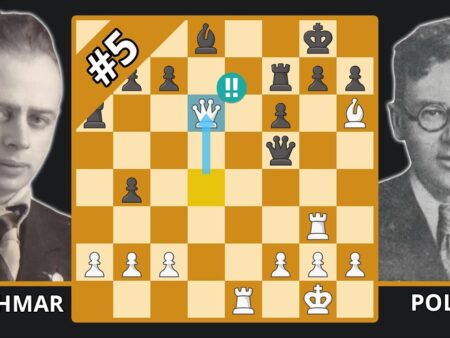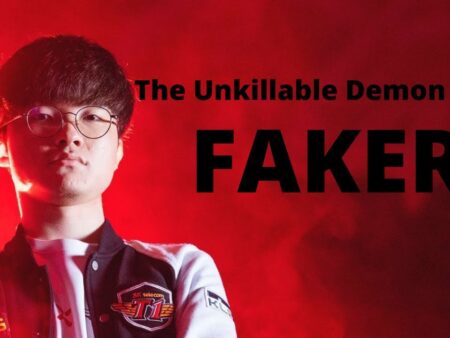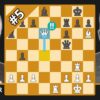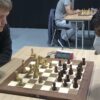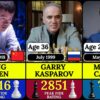Inter Milan`s defense is likely to play a crucial role if they hope to defy expectations and lift the Champions League trophy. However, for Simone Inzaghi, success in the final against PSG ideally won`t rely on last-ditch heroics, such as the miraculous saves Yann Sommer produced to keep Barcelona at bay in the semifinal. Instead, Inter will aim to prevent their opponents from even reaching threatening positions in the first place.
Inter`s tactical shape without the ball might just be the key factor that swings the final in their favor. How exactly will they set up? That`s part of what makes them so formidable – their approach is adaptable and hard to predict.
Consider the initial phase of the second leg against Barcelona. Inzaghi implemented one of the most aggressive pressing schemes Inter has shown throughout the competition. This involved pushing the wing-backs high up to challenge the opposing full-backs, trusting the wide central defenders to win their one-on-one duels against players like Lamine Yamal and Raphinha.

UEFA
In the image provided, Henrikh Mkhitaryan tracks Frenkie De Jong`s movement, further discouraging a pass that Marcus Thuram is already covering. Federico Dimarco has advanced rapidly to cut off the pass option, forcing Pau Cubarsi to eventually play a simple sideways pass to Eric Garcia. If Barcelona hadn`t taken this route, they likely would have been forced to pass back to the goalkeeper, Wojciech Szczesny, who would then have to launch a long ball towards Ferran Torres, facing an aerial battle he was unlikely to win against Francesco Acerbi.
Nicolo Barella`s energy is vital to making this press effective. His dynamic movement allows him to support either striker when they pressure Szczesny, simultaneously blocking passes to the center-back and shielding the option to De Jong. Throughout both legs against Barcelona, he acted almost like an off-ball disruptor. Even in a still photo not focused on him, you could sense his predatory anticipation when Pedri received the ball in a difficult position with his back turned.
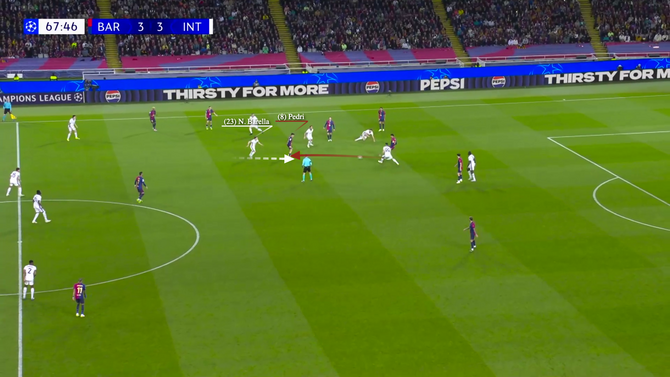
It`s easy to imagine Inter attempting to replicate this aggressive approach against a Paris Saint-Germain side that enjoys playing through the lines. However, it would be a significant risk. Barcelona`s wide outlets at the San Siro were Eric Garcia, a center-back playing out of position, and Gerard Martin, a promising young full-back but not quite at the level of Alejandro Balde.
For PSG, these roles are filled by Nuno Mendes and Achraf Hakimi, two of the world`s best players in their positions. When Denzel Dumfries dropped deeper in the second leg to provide support for Yann Aurel Bisseck against Raphinha, Martin found space and provided two assists. One can only imagine the damage Mendes or Hakimi could inflict on the flanks.
Yet, Inter is not limited to playing this way. They are perfectly capable of dialing back their press; their average Passes Per Defensive Action (PPDA) across the competition is 15.7, which is moderately below the average intensity. If the situation calls for it, they are well-drilled in adopting a deep defensive block.
Pep Guardiola noted this flexibility early in the Champions League campaign, even before his side was held to a goalless draw at the Etihad Stadium. He remarked that Inter has “good high pressing and go man to man… and after they defend with typical Italian mentality that they have to suffer.” At times, this suffering can push the limits, and achieving a clean sheet against Manchester City relied more on luck than flawless last-man defending in moments.
Nevertheless, this is a team that is comfortable surviving under intense pressure deep within their own penalty area. Among the 36 teams in the league phase, only nine allowed opponents more than 30 touches in their penalty box per game. Inter and Feyenoord were the only teams from that group to reach the knockout stages proper. While this statistic is naturally influenced by matches against strong teams like Barcelona and Bayern Munich, it highlights that Inter feels quite at home when they need to drop back and defend densely in their box.
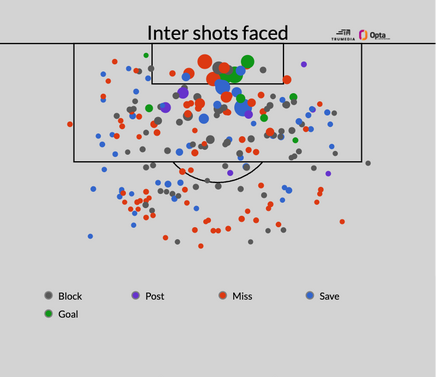
TruMedia
Consistently throughout the competition, Inter has shown faith in their ability to block shots. Arsenal`s efforts were denied by a black and blue shirt ten times. Bayern saw eight of their shots blocked at the San Siro, and even Young Boys managed to force Yann Aurel Bisseck and his teammates to throw themselves in front of seven attempts. With the outstanding Yann Sommer positioned behind them, Inter possesses the capability to bunker down effectively if the match requires it.
Relying solely on deep defending for the entire 90 minutes would be risky, just as Inzaghi wouldn`t want to gamble on his players aggressively chasing PSG across the pitch for an hour and a half. However, by skillfully combining moments of high pressing with periods of disciplined deep defense, Inter might just find the crucial tactical advantage needed on the biggest stage.
